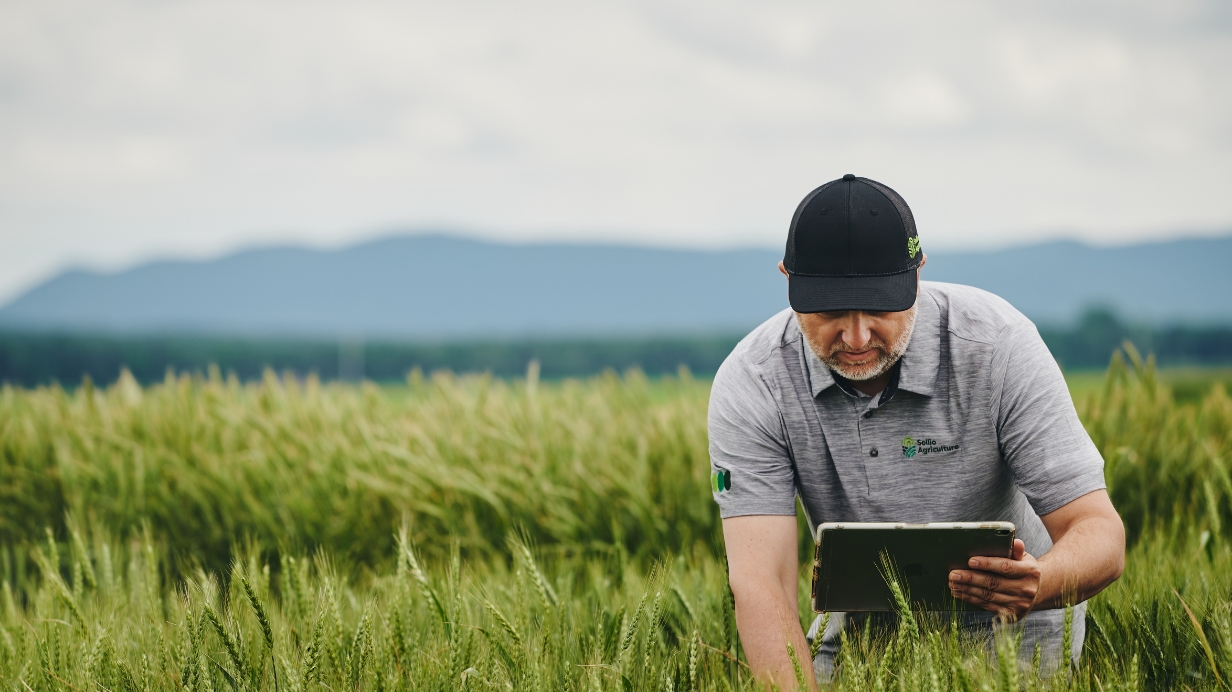What is carbon farming?
Carbon farming is a fairly new concept in Québec. We’ve prepared this overview for anyone wondering just what it is and what it can look like in the field.
Carbon farming is based on the concept of carbon markets. The idea is to pay farmers for adopting sustainable agricultural practices. That means practices that reduce GHG emissions, sequester carbon in agricultural soils, or both.
During the second AgroCarbone Grandes Cultures collaborative workshop, in fall 2024, a group of expert partners came together to discuss carbon farming.
Carbon farming initiatives
Integrating the agricultural industry with regulated carbon markets is an emerging topic in Canada and elsewhere in the world. However, a number of promising initiatives are underway both internationally and closer to home.
Australia
The Australian Carbon Credit Unit (ACCU) Scheme has been leading the charge in carbon sequestration since launching in 2011, with a focus on increasing the level of organic matter in agricultural soils.
There are currently over 1,000 projects registered with the Australian government to help farmers adopt sustainable practices.
However, the Australian model is based on farm-level benchmarks, which can discourage farms from participating if they’ve already started implementing sustainable agricultural practices.
Europe
Initiatives such as the Label Bas Carbone in France and the European framework adopted in 2024 show that creating carbon certification systems is possible. In fact, the European Parliament has reached a provisional political agreement on a new regulation covering carbon removals and carbon farming.
This is the first EU-wide certification framework for carbon sequestration and GHG reduction projects.
Canada
Environment and Climate Change Canada (ECCC) is developing an offset protocol specifically for the agricultural sector. The goal is to provide financial support for sustainable land management that goes beyond standard farming practices.
Québec
In Québec, the current regulatory framework (in French only) is covered by the cap-and-trade system. For now, the only initiatives eligible for offset credits are afforestation and reforestation on private land.
However, the Ministère de l’Agriculture, des Pêcheries et de l’Alimentation du Québec (MAPAQ) has taken an encouraging stance and may allow agroforestry projects to be eligible for the carbon market under certain conditions.
Sustainable agriculture in Québec
There are many studies and on-the-ground initiatives supporting sustainable farming practices in Québec.
Scientific research
In recent years, numerous studies have been conducted to assess the potential of sustainable farming practices. Those studies have helped:
Further our knowledge (in French only) of carbon sequestration in agricultural soils.
Find ways to overcome obstacles to the adoption of carbon-sequestering agricultural practices.
Determine that there’s great potential for natural climate solutions in Canada.
On-the-ground initiatives
There are also a number of hands-on efforts to help farmers adopt sustainable practices. Here are a few examples:
Agriclimate has developed an on-farm diagnostic tool to help agricultural producers adapt to climate change.
Terre à Table has teamed up with PepsiCo for a project called “Guarding the grain for a sustainable future.”
The Canadian Alliance for Net-Zero Agri-food (CANZA) is for industry players who aim to achieve net-zero carbon emissions by 2050. Corporate CANZA members include RBC, Maple Leaf Foods, and Nutrien.
AgroCarbone Grandes Cultures is a collaboration between Sollio Agriculture and Coop Carbone (in French only). It aims to develop business models based on best practices in sustainable farming.
Private sector
ChrysaLabs is a Québec-based agricultural tech start-up that wants to improve carbon market measurement and validation through better data collection.
Sollio Agriculture’s agri-advisors are also trained to help Canadian farmers calculate their farm’s carbon footprint and adopt strategies to reduce their GHG emissions
The AgroCarbone workshop also gave stakeholders an opportunity to talk about developing a framework that could drive the adoption of carbon farming in Québec. Read the workshop summary to learn more.

